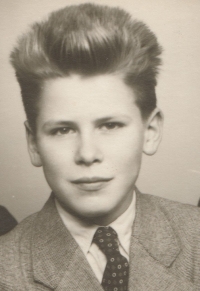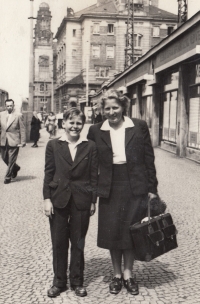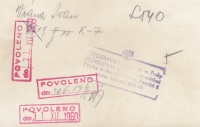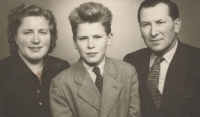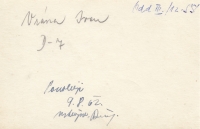When my dad came back from prison after 18 years, he was a stranger to me.

Stáhnout obrázek
Ivan Vrána was born on 3 December 1947 in Hradec Králové. His father Ivan (1914-2003) was a gendarme and his mother Zdeňka (1923-1984) was a housewife. His father was convicted for political reasons and imprisoned in 1950-1960 and 1961-1968, mostly in uranium mines in the Jáchymov and Příbram regions. Ivan grew up without his father. The family was moved to Kunvald near Žamberk. There, little Ivan had a difficult time in primary school, when he was subjected to ridicule as the son of a reactionary. In the ninth grade of elementary school, the committee forced him to sign to enter an agricultural apprenticeship, but he refused. When he entered the Naftové motory apprenticeship, which was outside the Ústí nad Orlicí district, he partly escaped the supervision of local Communist Party officials. After his apprenticeship as a wood modeller, he graduated from the mechanical engineering school and eventually from the Czech Technical University in Prague. In 1974 he married and with his wife Jolana (1955-2003) they had three children. The family lived in Prague and Ivan worked there in technical positions - e.g. at Technometra Radotín. He retired to Kunvald.
